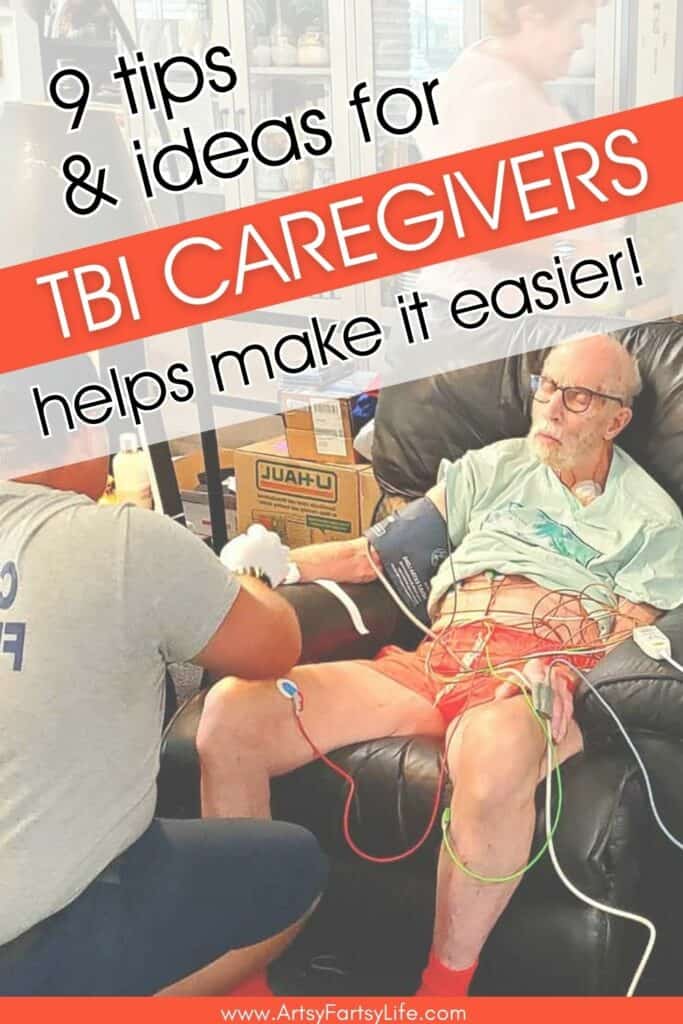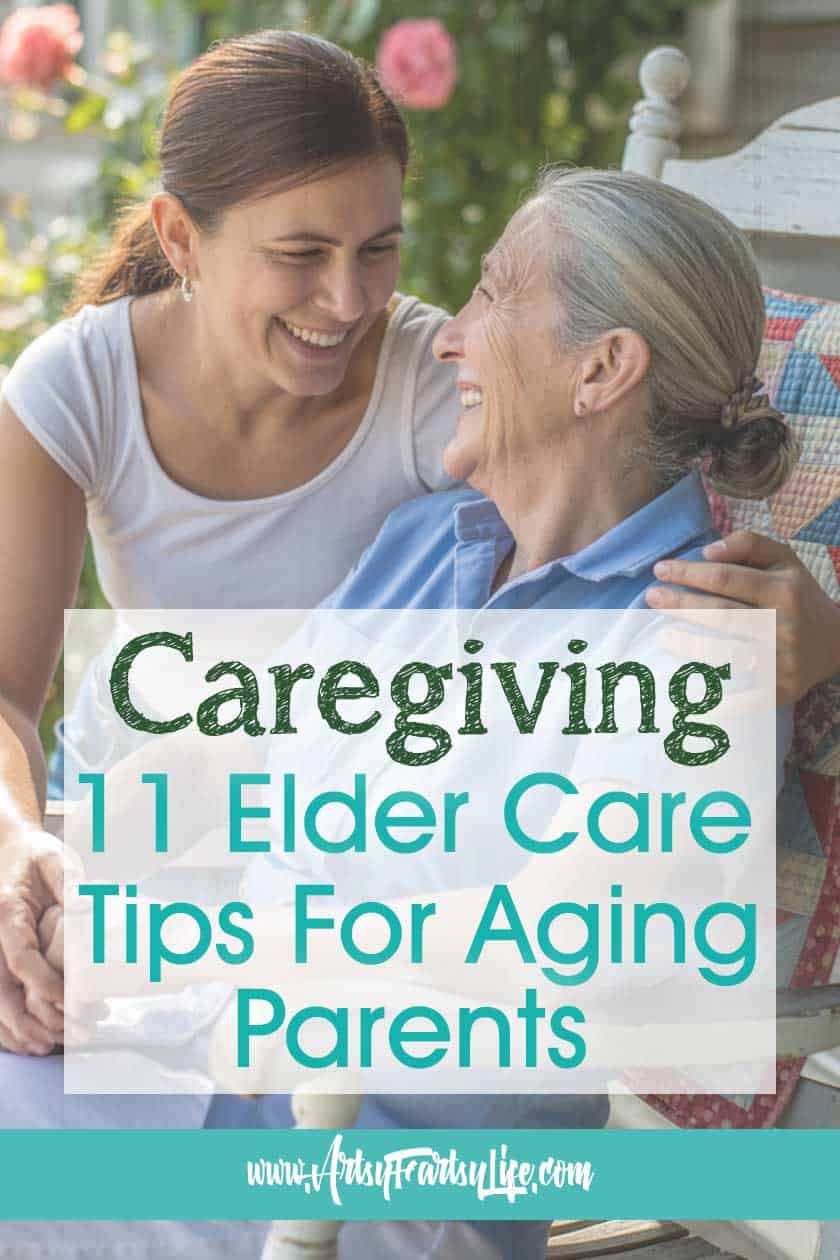Whether you are caring for a loved one who has had brain surgery, concussion, or other traumatic brain injuries, here are my best tips and ideas for how to help them (and you!)
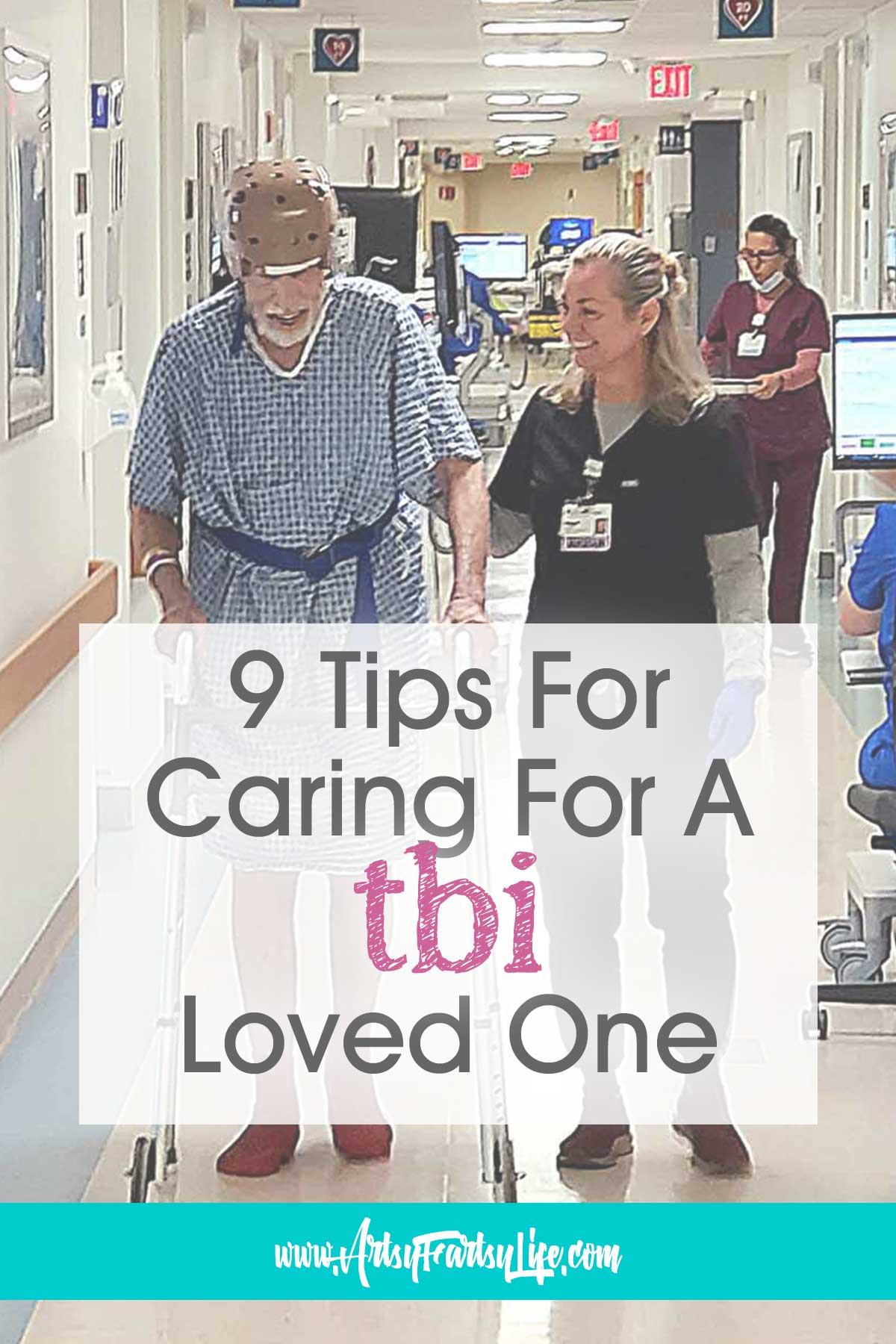
Please note: This article contains affiliate links, and that means that I may earn a commission if you buy something. Read my full disclosure here.
As a member of the sandwich generation (caring for kids and parents at the same time), I have to say that it is exhausting at times and at other times I feel so fortunate to have my dad still around to care for!
My Dad's Traumatic Brain Injury Story
Daddy had fallen on a cruise ship January, sliced up his face pretty badly, gotten a few stitches and carried on with his life.
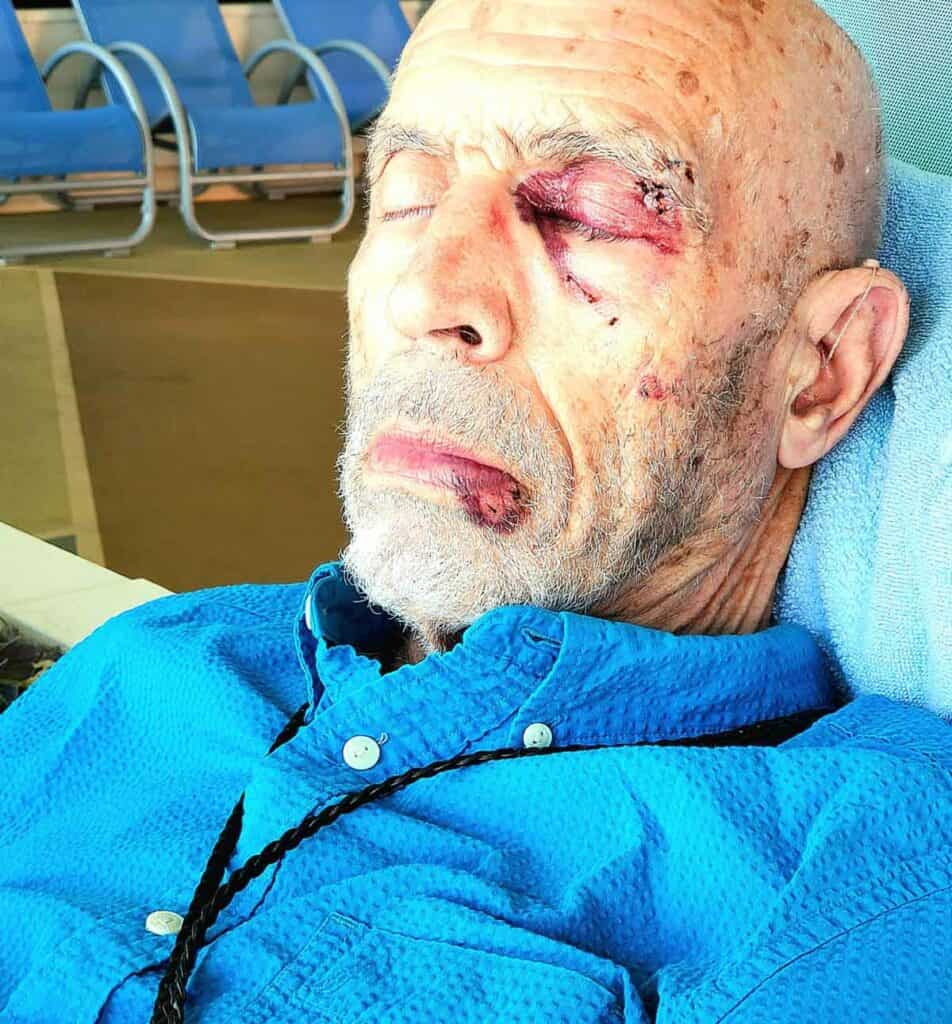
What we didn't know at the time was that he had suffered a brain injury and that his head was slowly filling up with blood.
Fast forward to March and Dad stopped being able to use utensils on his right side (dominant hand) and also his speech was slurring and he had trouble finding his words.
After a trip to his primary care doctor (Dr. Patel is the hero of this tale!) he was sent right to the emergency room. After a bunch of tests they decided to do brain surgery, but had to wait 7 days until the blood thinners Daddy takes got out of his system.
By the day of surgery Dad was pretty catatonic and we were FREAKING OUT! Well the surgery "went well", Dad was released to rehab where he got blood clots in his legs because he can't take the blood thinners anymore and he was sent home.
He did okay, but seemed to be getting worse. Back to Dr. Patel, back to the emergency room, back to the hospital. He got out that time, hit the driveway of his house, fainted on the way home and yep, right back to the hospital via the ambulance this time!
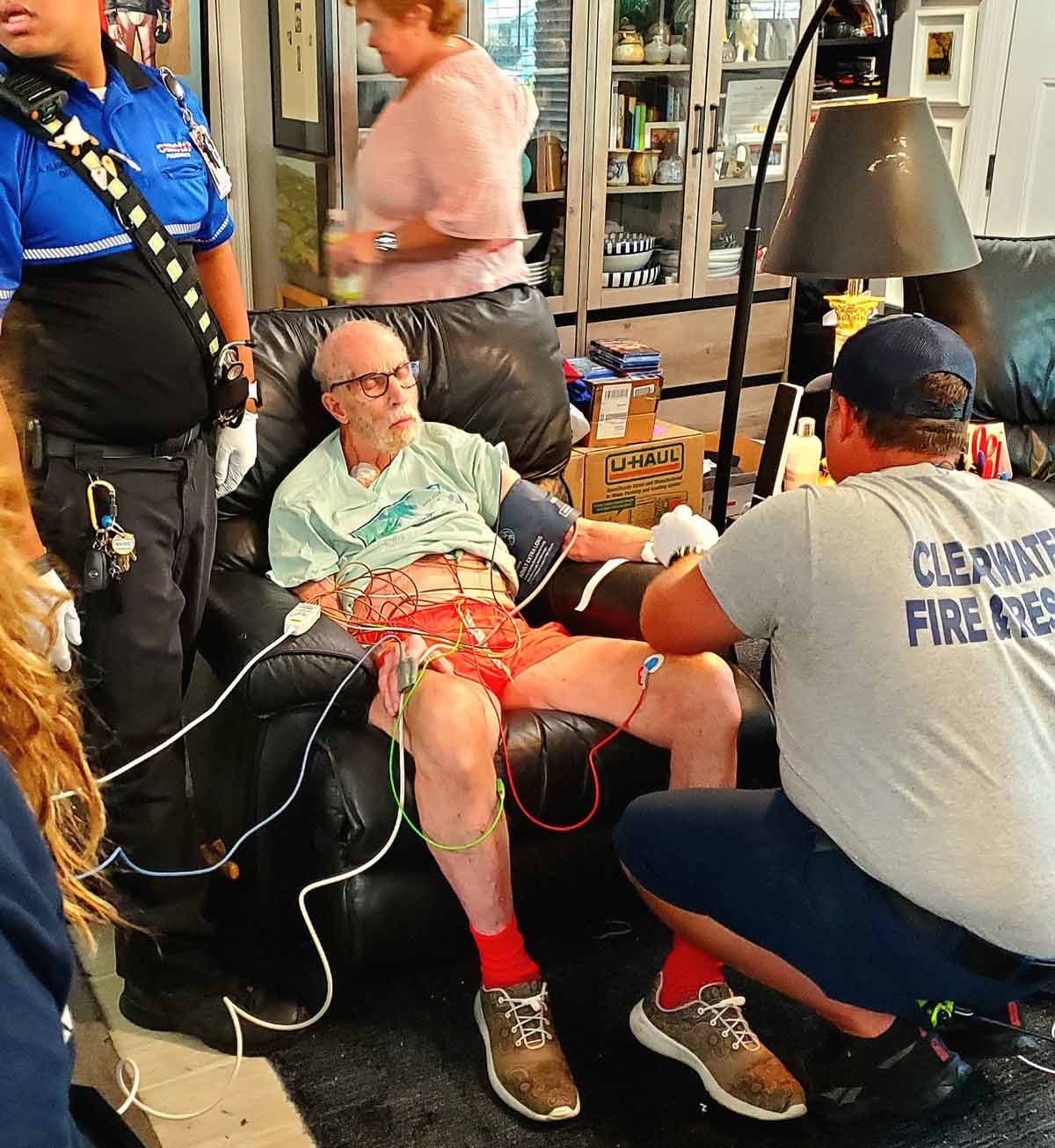
More tests, and FINALLY they figured out that he had a massive infection in his skull, cut out a big part, put him on a HEAVY dose of IV antibiotics for 3 months, gave him a cool hat to protect his skull and sent him back to rehab.
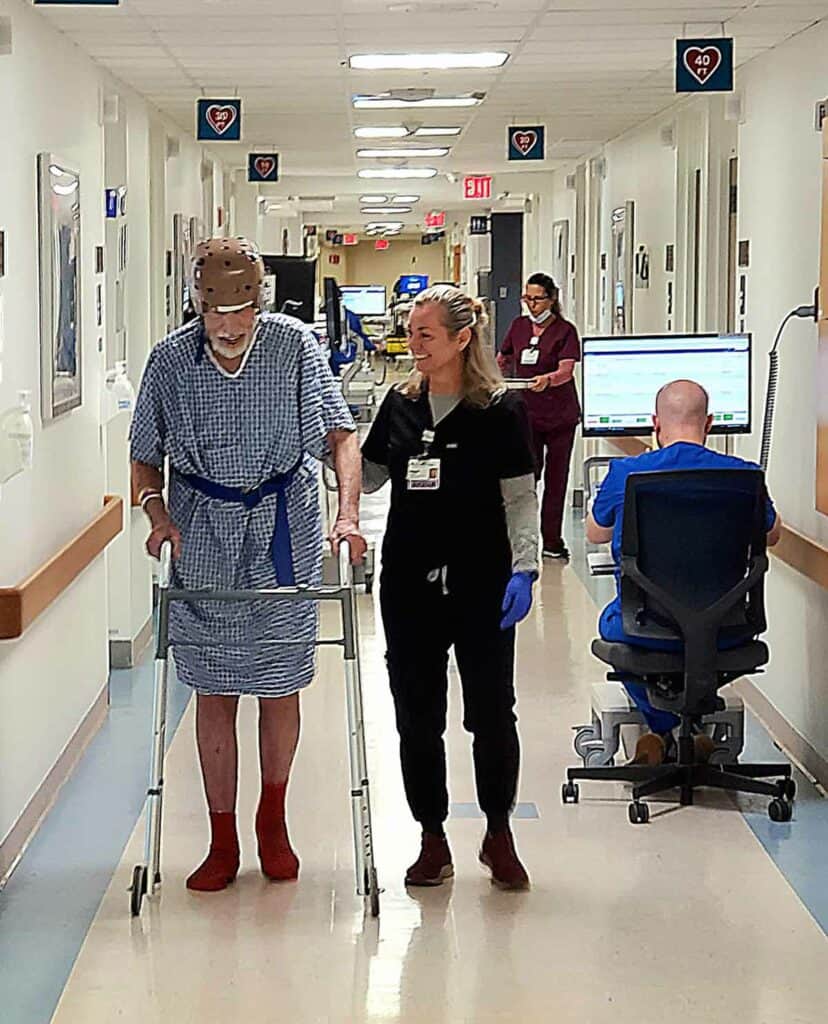
This time it worked so much better, now Daddy is home and getting back to his old self (minus a big chunk of skull... sigh).
9 Tips for TBI Caregivers
Since I have been a dementia caregiver for my Mother In Law for almost 5 years now, I have developed some coping mechanisms and practices that truly kicked in when I had to help my Dad's husband care for him this time around!
Here are 9 great tips in case this is your first time family caregiving for a traumatic brain injury (TBI)!
1. Write Everything Down
When you are in the throws of starting your caregiving journey everything is chaotic and new. It is easy to let things slip through the cracks or forget the order that things happened.
Here are a few things you can note:
- When the injury occurred
- Anytime they interact with the health care system
- Surgeries
- Moves to rehap
I promise you that over the course of the next few months or years doctors, rehab people, etc. will ask you for when different things happened and it is super helpful to have a record of dates and events that have occurred.
2. Start A Medicine List
If your loved one was on any medicines before their TBI, check with their primary care doctor, look in the medicine cabinet and get a firm grip on what they were taking before the TBI.
Once they are in the hospital there will be different medications given and you will get a list of these (and possibly the old ones) when they are discharged.
Check as soon as you get home for the names and dosages to make sure you have the right things to continue the recommended medicines.
When Daddy came home we did not have one of the medicines he needed, so a quick call to his primary and a hop over to the pharmacy was needed!
Additional Resource :: Free Printable Medicine List For Caregivers
3. You Are The Memory Now
Maybe I should have put this first, but now that you know you are the keeper of the dates and medicines, you probably realize that for a time being at least you are going to be the memory keeper for your loved one.
When Daddy's TBI was really bad (lots of pressure on his brain) he wasn't retaining things about his health so I had to step in and remind people of things that were important.
For example, one day in the ER the gal with the Hematology (blood) staff came by, said she was just checking because there wasn't much for her do and I had to tell her that Daddy had blood clots in his legs at the rehab before.
That message hadn't gotten through to her and would have caused a ton of problems down the line if no one told her!
She ordered an Ultrasound and yep, the blood clots were back and Dad wound up getting a screen put in to catch them.
4. Make Yourself Some Systems
When Daddy got sent home this last time an IV bag came with him... and we (my Father-In-Law and I) were expected to be able to hook him up to it... ack!
Wally had some medical training from his days in the Army A LONG TIME AGO and I am a marketing person not a nurse, so we were totally unprepared for this kind of care.
They sent the IV bag, a tiny computer, a nice nurse for a couple of days AND a box FULL of stuff to use.
After trying to dig in the box for the 7 different things we needed each time, I made ziplock baggies of exactly what we needed for each IV change... brilliant! This made it easy to grab a bag and get started instead of stopping and starting the process each time.
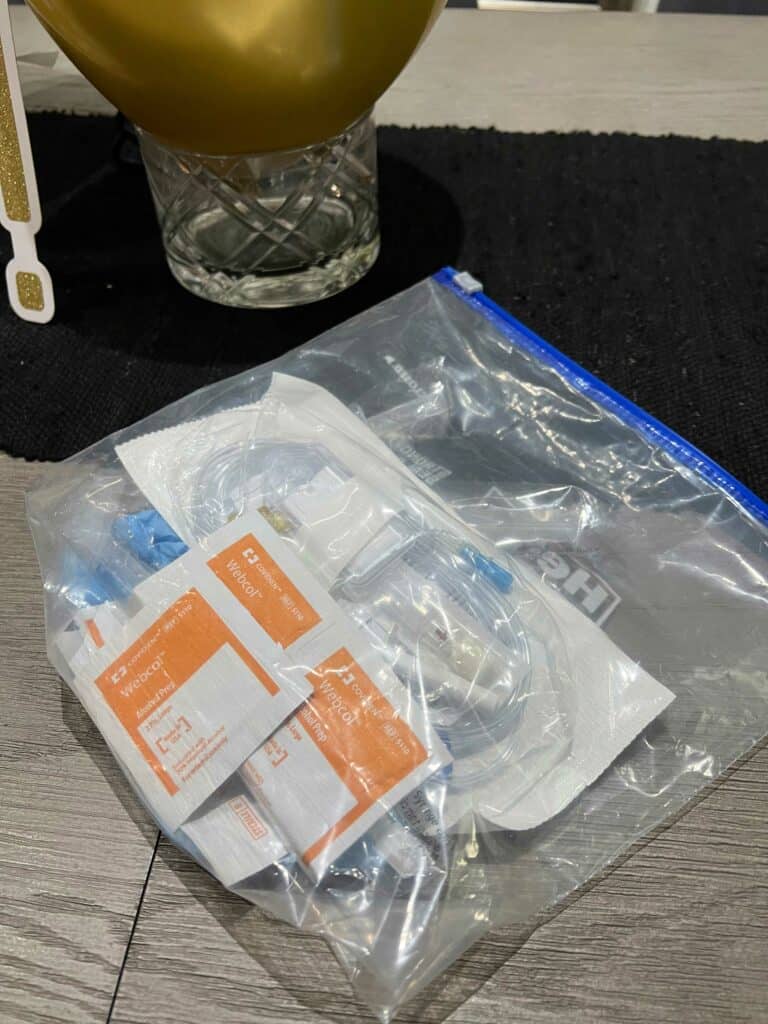
Now, your TBI loved one may not have an IV, but make sure you look around and see what kinds of things you can streamline in your caregiving to make things easier for yourself.
If you have to do something more than a couple of times, get yourself a model system!
5. Get Ready For Grumpiness
Your loved one may be in pain or just confused because of their injury. They are uncomfortable and out of sorts a lot of the time and you are going to be bearing the brunt of this.
I KNOW, we all want to be kind and caring all the time, but being the "bad guy" who has to remind them of things is tiring and they will probably resent you for it.
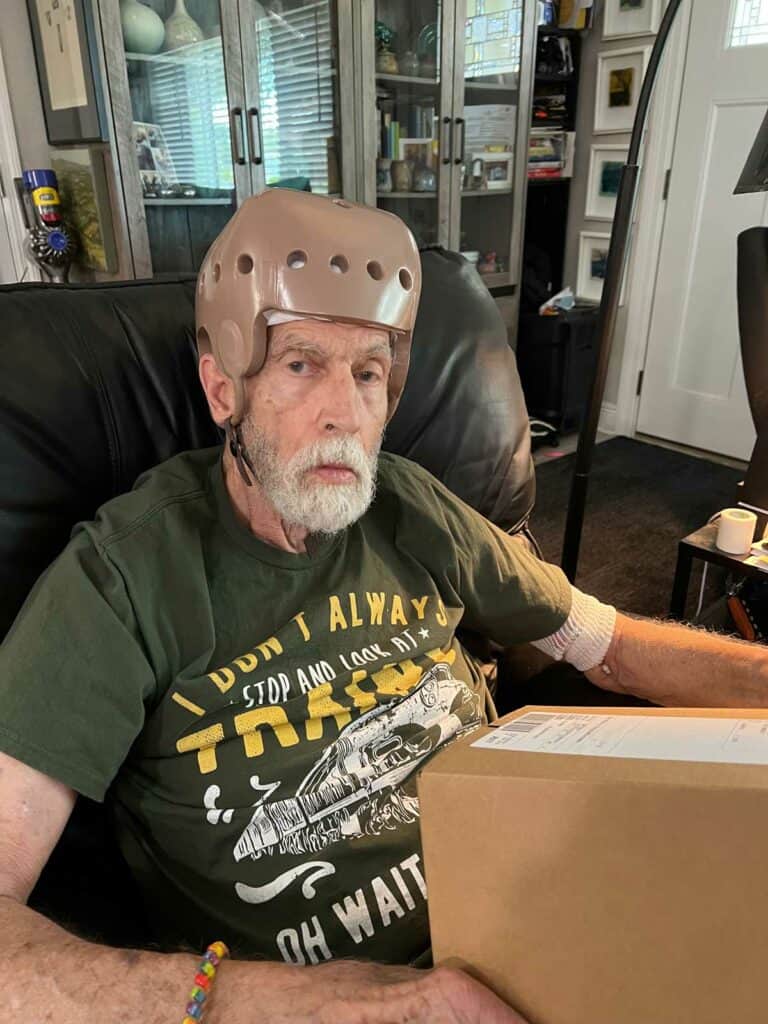
For example, because Daddy has blood clots in his legs it is best if he raises them to allow for easier blood flow. He HATES to be reminded to raise his legs.
For this kind of things ALWAYS go back to the doctors to be the "bad guy".
Remind them that you are only messenger and this is what the doctor has recommended.
6. Don't Be Overly "Remindery"
And here we go with the mixed messages... ha!
Yes, remind them when you can, but don't be overly remindery! Many people with traumatic brain injuries experience memory loss and sometimes it is best not to remind of them of EVERYTHING all of the time.
I learned this with my Mother-In-Law who has dementia and can't remember hardly anything current.
For example, her sisters are both dead, but when she talks about them we act as if they are still alive and just not in touch right now.
The reason for this is called therapeutic lying and it is actually really compassionate. If we told her every time that her sisters are dead she would experience that loss over and over again for no good reason.
There are so many different ways your loved one may be forgetful about the circumstances of their injury and until they are better you don't have to remind them of every little thing every time they get something wrong.
7. Don't Get Overwhelmed
I KNOW, it is easy to feel overwhelmed when you are the one caring for a loved one who is in a bad way.
We mostly worry that we are going to kill Daddy with the IV bag on the daily, but that is probably not going to happen (fingers crossed).
Truly take each thing that is your responsibility, look at it, made a plan and then move onto the next thing.
Figure out if you can make it easier for them or yourself and take it one day at a time (one hour or minute if necessary at the start).
It is important to remember that the first time you do anything at all it sucks and I am sure you are doing LOTS of things for the first time right now!
8. Get and Accept Help
I KNOW, it can feel like no one will take as good care of your loved one as you will, but you can't do it all by yourself.
If family and friends offer to help, accept it. Take time away, accept the free meals, be grateful for whatever comes your way and say YES!
If no one is offering to help, reach out. See if there is a group at their church who will help you, ask their bowling buddies, make your sister come by for a while.
You may have to get a little loud here, but if you are drowning and don't get help, you won't be any good for your loved one!
9. Be A Zealous Advocate
Last but not least, don't be worried about being aggressive (luckily that is not my problem, I have a big mouth!)
But if you are a nice person who generally doesn't want to rock the boat, you are going to have to be more forceful in advocating for your loved one.
Here are a few things that you can do:
- Remind their doctors and nurses of what they did before the TBI... for example we always tell them that Daddy was a professor of economics and that he was in the Air Force, it make him more human!
- Ask for the warm blanket or the extra crackers or the little things that will help them be more comfortable
- Grill the doctors about what they are doing and what you should be doing to help your loved one
- Note down changes and keep reminding the doctors and nurses of what you are seeing
I am sure there are a million more ways to be the squeaky wheel (in a pleasantly persistent way). Remember that you are helping your loved one, not being a bother!
Tips For TBI Caregivers Wrapup
If no one has told you lately, you are doing a great job! Just knowing that you have read this far down means that you care a lot about your loved one's brain injury recovery and are trying to do the best for them... you are amazing!
If you can, seek a caregivers support group of people to talk to (or just lurk in the group!)
I am a member of a Dementia Caregivers Facebook group and when I was in the throws of caring for my Mother-In-Law just hearing that others were experiencing the same things with their family members and their strategies made me feel less alone (and crazy).
I never talked much, but even lurking helped me feel like I was in a community of caregivers instead of alone on an island all by myself!
